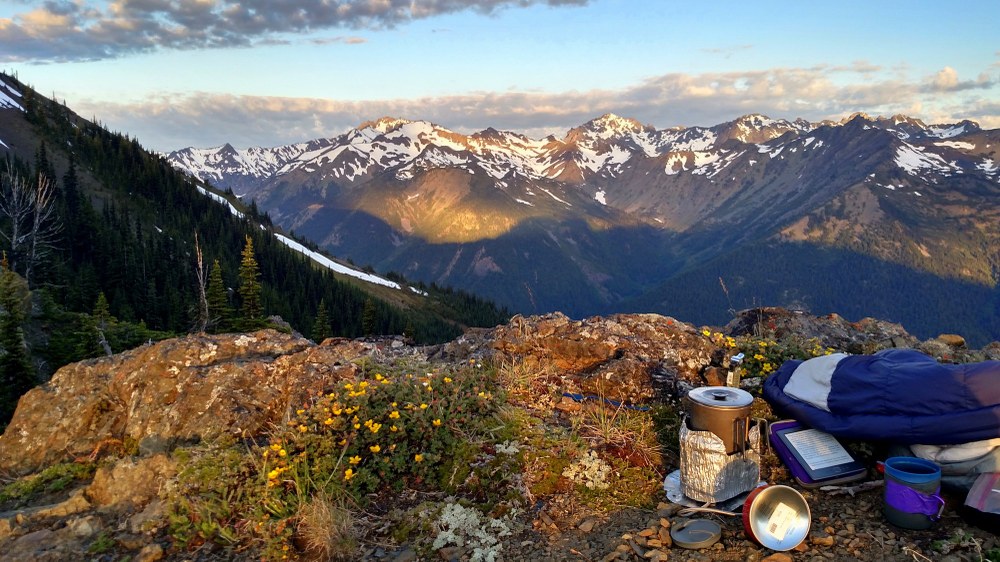
It was day nine of an 11-day trip on the John Muir Trail when I hit a wall. I had packed too many bulky carbs and not enough calories in my bear can. At the time, this was the longest backpacking trip I had done. My spouse and I were able to make our “gorp” last until we were rescued from our plight by my sister who carried in our resupply, just in time. Enduring such slim pickings and operating on so few calories was a mentally exhausting and horribly demoralizing experience.
During another nine-day trip on the Wonderland loop, I lasted six days before I decided I couldn't bear to eat another Mountain House meal. Both my spouse and my could no longer stomach the salty flavor. Our meals became something to suffer through rather than enjoy.
After withstanding my share of inadequate calories and unappetizing flavors, I’ve become a relentless advocate for careful food planning focused on lightweight, easy prep and – most of all – foods you look forward to eating.
For the past ten years I’ve been teaching a Mountaineers clinic on lightweight backpacking food planning and preparation for beginner and experienced backpackers. I learn and improve over time, with the help of expert trail food planner and lightweight backpacker Sarah Hess, my clinic co-teacher.
Most of our students have the same questions: How many calories do I need for my trip? How can I lighten my food bag and still have enough food to last through the trip (without bringing a lot of uneaten food home at the end)? What ideas do you have for tasty breakfasts, lunches, snacks, and dinner foods that are lightweight and easy to prepare at camp?
We obsess and spend lots of hard-earned cash on reducing the weight of our tents by eight ounces… but some careful planning for calorie-dense foods (i.e. foods that pack the calories you need in fewer grams of weight in your food bag) can take the weight of your food bag down literally by pounds on a multi-day trip.
The Lightweight Backpack Food Planning and Preparation clinic answers all of these questions, while providing helpful resources to get your own backpack menu planning underway. Topics and resources covered in the clinic include:
- An extended lookup table with the calorie density and nutrition (% protein, fat and carbs) for a wide array of backpacking foods (including snacks, freeze dried meals, and bars)
- Ideas for lightweight and tasty breakfast, lunch, snack, and dinner foods
- A template for developing a daily backpack food menu that calculates daily calories and weight and enables you to substitute different food combinations that meet your daily calorie needs at the lowest weight with foods you’re excited to eat
- Alternative food strategies for backpackers, including cold-food backpacking, ‘off-the-store-shelf’ backpacking, freeze dried vs. dehydrated options, and tips for dehydrating and storing your favorite home comfort food meals
- A worksheet for planning your fuel needs based on how many cups of hot water you will need each day, for canister fuel or liquid fuel
- Tips for packing a bear can and resupplying during an extended trip
This seminar will be a great complement to, and foundation for, other clinics offered by The Mountaineers on gourmet trail cooking and food dehydration.
 Cheryl Talbert
Cheryl Talbert